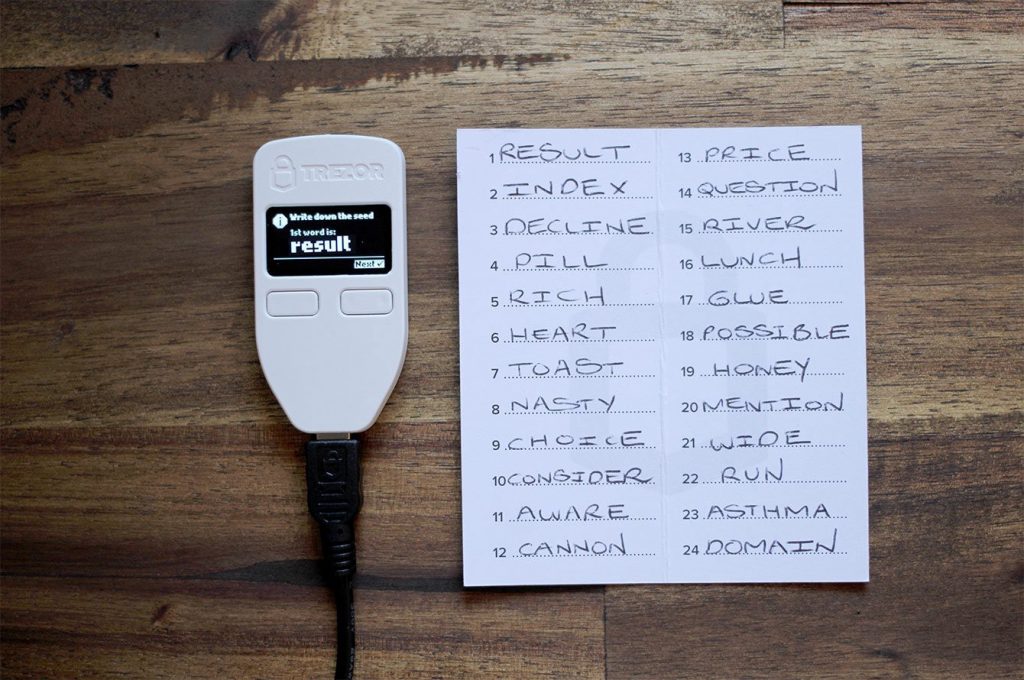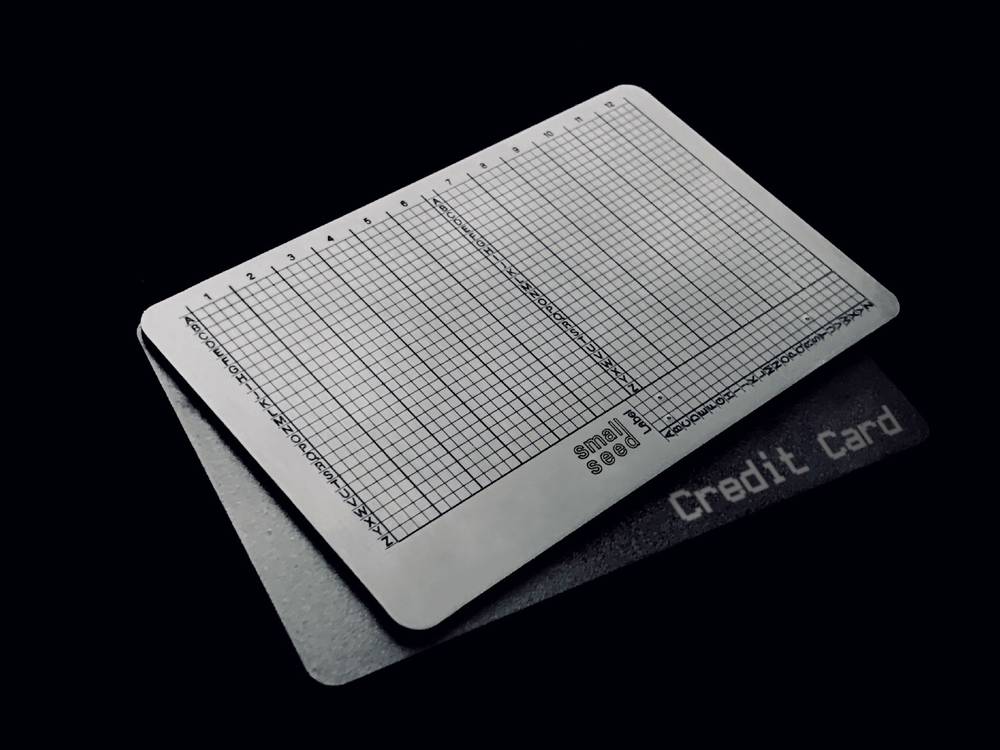How to store Bitcoin?
A “bitcoin” must be stored on an electronic medium, a wallet. This has a similar function to an E-mail account. A Bitcoin wallet is a piece of software. One can either run it on a computer, acquire a designated hardware device with pre-installed software or use a third party service. The wallet does not actually store bitcoin, but acts as a secure keychain that allows its users to communicate with the blockchain, the decentralized public Bitcoin ledger, that safely stores all transaction information. A wallet allows you to access, control and exchange bitcoin.
A Bitcoin wallet consists of a key pair (private key and public key), the corresponding wallet address and a separate log of all transactions. The log gives the user a complete history of all outgoing and incoming transactions. Bitcoin keys are randomly generated strings of numbers. Overly simplified, the key pair functions like the password and address to your E-mail account. The private key, like your password, is used to access your bitcoin. The public key, somewhat like your E-mail address, is computed from your private key and used to generate your bitcoin address so people can send you bitcoin.

The private key is a 256-bit integer number and gives anyone who holds it access to your bitcoin. It must remain secret at all times. Revealing it to third parties is equivalent to giving them control over your bitcoin. Once a bitcoin wallet is set up, it is active on the bitcoin blockchain, a private key is the access authorisation. If you loose your private key, you loose access to your bitcoin. You probably heard the phrase “not your keys, not your coins”.
Nowadays, wallets generate a “seed phrase” – a group of easy to remember words – of the private key. A seed phrase is a combination of 12-24 words also known as a mnemonic sentence. A mnemonic code or sentence is superior for human interaction compared to the handling of raw numerical values. The words can be written on paper or spoken over the telephone more easily (BIP: 39). The see acts as a back-up. If one loses access to a wallet, or experiences a wallet failure, one can restore the wallet by using the backup seed phrase.
A 24 word seed phrase is extremely secure. The seed comes from a specific list of 2048 words. Someone would not only have to guess all the words, but also put them in the correct order. For a 24 word seed phrase, there are about 197,618,498,965,019,640,189,561,147,748,160,696,069,580,773,829,359,895,960,674,276,7068,384,079,188,241 possible combinations. A number so large, a human brain can’t even read it. No computer in the world could guess the right set of combinations either.
Bitcoin wallet ‘Trezor’ with it’s corresponding 24 word recovery seed:

Once you receive your seed phrase, you should write it down by hand offline on a piecer of paper or safe it on steel to withstand any types of catastrophes, such as a fire. There are metal seed back up plates you can use.

Jameson Lopp writes extensively about privacy and wallet security. You can check his ‘Metal Bitcoin Seed Storage Stress Test‘.
First rule, don’t leave your coins on an exchange. When signing up on an exchange, you actually enter an agreement with the exchange, allowing the exchange to hold custody of your private keys. In consequence, you stop owning your bitcoin. If the exchange gets hacked, or goes bust – your coins are lost. Arguably the easiest and safest way for you is to store your coins on an hardware wallet like Bitbox, Ledger, Trezor or Coldcard.
This BTC Wallet Set Up Guide will help you to securely set up your wallet: 1. Set the wallet up (by installing or downloading) 2. Back up the wallet (write down your seed) 3. Send some bitcoin into the Wallet 4. Wipe the Wallet 5. Restore the Wallet & Check if the bitcoin is accessible 6. If the bitcoin is still accessible, the seed is correct 7. Continue using the wallet. If you follow these steps, by funding your wallet with a small amount of bitcoin and wipe your wallet right after you wrote down your seed phrase, you can make sure that the seed phrase you wrote down is correct. You can add additional Wallet Security with a Shamir backup, which is a sharing scheme in which the recovery seed is split into multiple shares (up to 16) with a predefined threshold for recovering the wallets in the future. So for a family of ten, there could be ten Shamir shares with a threshold of six: six family members would have to come together to restore their wallets in case something happened to the device (Learn more). You can create multiple accounts within your wallet using a passphrase (Learn more).
You can also secure your wallet with a multi-signature, which essentially means that multiple parties need to sign into a wallet at the same time to move the funds. Companies like Casa and Unchained Capital, provide multi signature services. Self Hosted Multi-signature solutions include: Specter, Sparrow Wallet, Caravan, Electrum, FullyNoded, Gordian Wallet
—
In Addition, for your daily use of bitcoin you can set up a desktop or mobile wallet, where you can store small amounts, using it like a cash wallet. Most of the options for desktop and mobile wallets are custodial, meaning you are not in charge of your keys. However, for connivance, this is fine, as these wallets should be used as cash like wallets only.
Desktop Wallets Samurai, Wasabi, Electrum and Core.
Mobile Wallets Blue Wallet, Samourai and Muun.
Lightning Wallets A more recent phenomenon are Lightning Wallets, that support the Lightning Network, Bitcoin’s layer two scaling solution for micropayments. Bluewallet, Phoenix, Breez, Muun Wallet, Zap, Zeus or RTL allow you to use Lightning on desktop and mobile. Users benefit from instant transactions and low fees.
OTHER RESOURCES
For an explanation on what Hardware Wallets are, listen to this “The Van Wirdum Sjorsnado Podcast”.
For a complete overview on what a bitcoin wallet is, visit this “Wallets Q+A” by Bitcoiner.Guide.
Andreas M. Antonopoulos, Mastering Bitcoin: Unlocking Digital Cryptocurrencies – Chapter on Wallets
Thank you for taking the time to read though this piece, if you have any questions, thoughts or advice, please reach out.
_______
Follow me
Twitter
Instagram